The Disability Policy Centre Privacy Policy
Last updated 12th January 2022
The Disability Policy Centre is committed to using the data provided to us responsibly and in accordance with all legislation and data privacy regulations. The following privacy statement provides clear demonstration of how The Disability Policy Centre collects and uses the personal information that is provided to us.
THE DISABILITY POLICY CENTRE
The Disability Policy Centre is an independent think tank, the first of its kind in the United Kingdom, dedicated to the development and advancement of policy that ensures that disability is at the heart of legislation. The Disability Policy Centre firmly believes that through collaboration we can make an impact.
Our company registration is: 13754601
THE COLLECTION OF INFORMATION
We collect information in a number of ways.
The information you provide to us, for example submitting the contact form on the website and registering for an event through this website or third party sites.
The information available in the public domain such as elected office holder email addresses.
Information we get from your use of our website and services. Like all organisations, we are able to confirm what browser you are using, IP address and computer operating systems that are being used and this information may be used to improve the services we offer, we are able to do so but choose not to.
INFORMATION COLLECTED
The information we gather may include the following:
Name
Address
Email address
Telephone number
Location
Date of birth
Disability
Gender
Employment
Social media account names
The Disability Policy Centre hold and process personal data only to ensure the progression of our mission, these include the following reasons
Send information about latest events, activities and participation opportunities where we have acquired consent or where personal information is in the public domain or has perviously been given to The Disability Policy Centre, in line with data retention laws.
To accept applications to attend which requires personal data
To communicate with attendees, prospectives, media, and those interested in the work of The Disability Policy Centre
For administrative purposes
To ensure that we do not send undesired information to individuals who have withdrawn their consent to be contacted
LEGAL BASIS
When The Disability Policy Centre collects and uses your personal information, we will make sure this is only done accordance with the legal grounds available under Data Protection law. In all cases, The Disability Policy Centre operate the upmost care and due attention to the legitimate interests against your rights as an individual and ensure that we only use your personal information in a way or for a purpose that you would reasonably expect in accordance with this policy, and that does not intrude on your privacy or expressed interests.
DATA RETENTION
The Disability Policy Centre will retain your information for as long as you have an active relationship with us. If you cease to have an active relationship with us or request to receive no further contact, we will retain only the basic information required in order to avoid sending you unwanted materials in the future. If you request the complete removal of information this will be actioned.
STOP OR CHANGE COMMUNICATION
If at any time you wish to stop or change how we communicate with you, or update the information we hold, please email contact@dispolcentre.org. We want to make sure that the personal information we hold for you is accurate and up to date. If your contact details have changed or you think any information we have about you is incorrect or incomplete, you can always update or correct the information we hold about you by contacting us at contact@dispolcentre.org.
ACCESS TO YOUR INFORMATION
You have the right to request a copy of the information that we hold about you. If you would like a copy of some or all of your personal information, please contact us at contact@dispolcentre.org.
COMPLAINTS
If you want to make a complaint about the way we have processed your personal information, or if you have any questions about this privacy policy, this website or the services we provide to you online, you can contact us at contact@dispolcentre.org.
COOKIES
The Disability Policy Centre website uses cookies, which are small text files on your device (computer, smartphone etc.). They are made by your web browser when you visit a website. Every time you go back to that website, your browser will send the cookie file back to the website’s server. They improve your experience of using a website, for example, by remembering your preference settings and by measuring your use of a website to ensure that it meets your needs. Cookies can also be used to show you relevant Onward content on social media services such as Facebook – these are known as ‘retargeting’ or ‘advertising’ cookies.
For further information visit www.aboutcookies.org or http://www.allaboutcookies.org.
You can set your browser not to accept cookies and the above websites tell you how to remove cookies from your browser. However, in a few cases some of our website features may not function as a result.
OTHER WEBSITES
We cannot be held responsible for the privacy of data collected by websites not owned or managed by The Disability Policy Centre, including those linked through our website.
CHANGES TO THE FOLLOWING STATEMENT
We may update the terms of this policy at any time, so please do check it from time to time. We will update the top of the privacy policy with a “last updated” date after every change to the policy. By continuing to use our website, you will be deemed to have accepted such changes.
YOUR PERSONAL RIGHTS
The Disability Policy Centre uses and protects your data under UK-GDPR. This protects your data and grants your rights over your data:
The right to be informed
The right of access
The right to rectification
The right to erase
The right to restrict processing
The right to data portability
The right to object
Rights in relation to automated decision making and profiling
